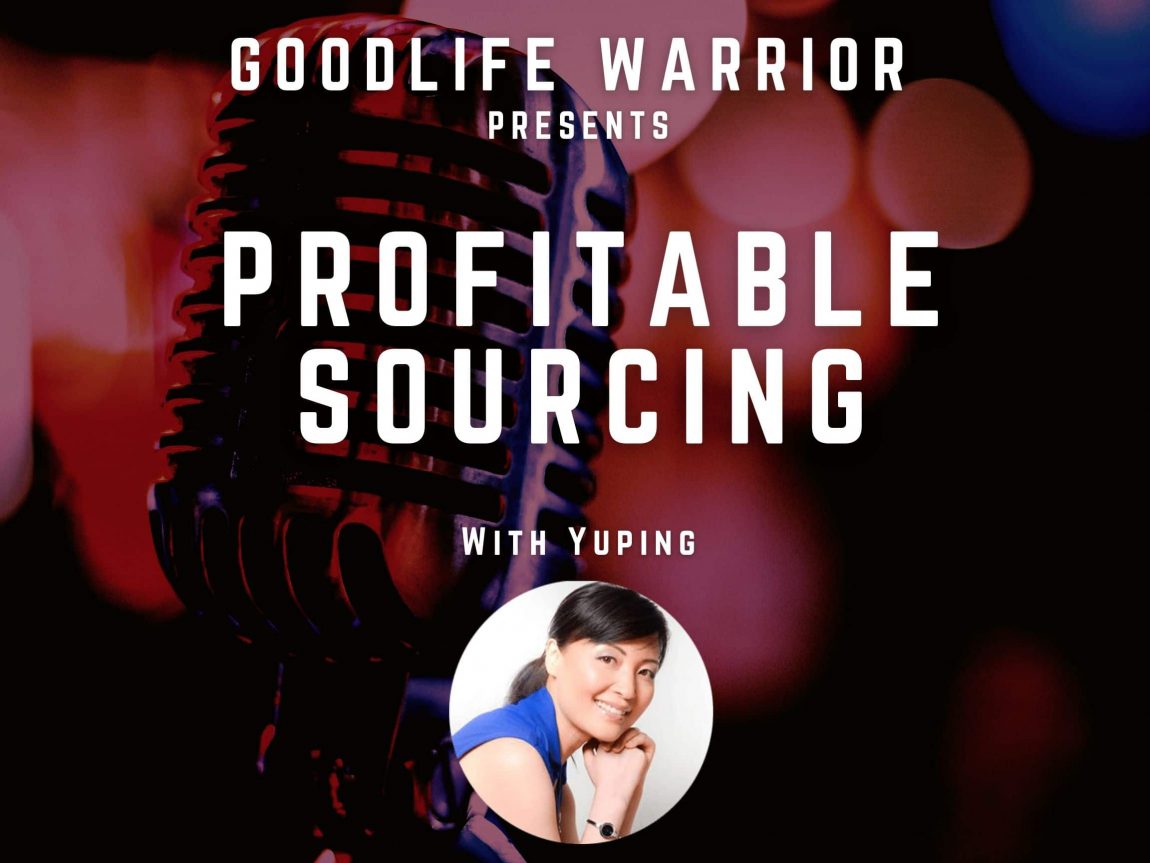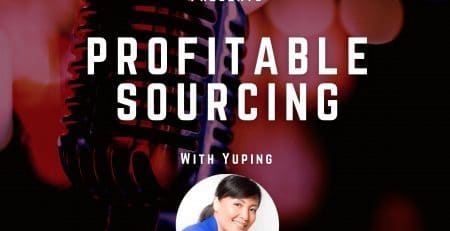Do you want to get the best price? Do you want your supplier to make an exception JUST for you? Listen to this episode and learn how to use the 30/70 Rule of negotiation to get the best result. Enjoy!
[buzzsprout episode=’9448927′ player=’true’]
Where to subscribe: Apple Podcast | Google Podcasts | Spotify | Stitcher | RSS
Full Transcript:
How are you today? Welcome back to the Good Life Warrior channel. I really hope your day is going well. Today, I’m going to share some awesome negotiation tips to help you upgrade your game. Today’s tip is the 30/70 rule of negotiation. You are going to love it.
For those of you who are new to this channel, welcome. This is the place where you can find high-quality sourcing, content, high-quality negotiation content, and a healthy dose of positivity. Also in the video description, there is a lot of free information. Make sure you download what you need. If you couldn’t find what you need in the video description, go to the sourcingwarrior.com website. There is a lot more free information. Now let’s get back to our negotiation business.
Negotiation business is people business, right?
When we deal with people, we need both IQ, your intellectual intelligence. Out of your thinking mind is your logical mind, and your EQ, out of your heart center, your emotional intelligence. To be really good at negotiation, you cannot only negotiate out of your logic. You cannot only negotiate out of your emotional intelligence like a drama queen, right? If you want to be really good at supplier negotiation, you need to be aware of both IQ and EQ.
 Now the bigger questions are number one, what is the negotiation? IQs and EQs. Number two, how do you balance the two to make your negotiation more effective? Now, let me give you a couple of examples related to negotiation IQ and EQ. During the negotiation, let’s say you fabricate a deadline, during the quote process or call for a settlement for a quality issue. No matter what situation it is, you are fabricating a deadline. This is a negotiation IQ. It’s very tactical, with no emotions involved. It’s a skill. Once you learned, you can apply this skill in any negotiation situation.
Now the bigger questions are number one, what is the negotiation? IQs and EQs. Number two, how do you balance the two to make your negotiation more effective? Now, let me give you a couple of examples related to negotiation IQ and EQ. During the negotiation, let’s say you fabricate a deadline, during the quote process or call for a settlement for a quality issue. No matter what situation it is, you are fabricating a deadline. This is a negotiation IQ. It’s very tactical, with no emotions involved. It’s a skill. Once you learned, you can apply this skill in any negotiation situation.
Now, if you’re on the FaceTime call trying to deal with the supplier issue, whether it is a price increase, that’s a common right, or a quality issue, whatever the problem is, the emotion you displayed to your supplier is a reflection of your negotiation EQ. That is really coming from your heart. You cannot control yourself. Many people are not even aware of this part, this negotiation EQ. I have seen people display anger, lashing out to the supplier, showing the supplier that they are very, very upset. Unless this emotion is a very intentional play, then you are losing the effectiveness of your negotiation. You have to be totally aware at what time I’m using my negotiation IQ, at what time I’m intentionally using the negotiation EQ.
Now let’s talk about the balance between the two. At the beginning of the supplier relationship, when you have a new supplier, there’s no need to focus on negotiation EQ because you have zero relationships with them. You don’t need to be lect to get the best quote. Focus on your negotiation IQ, whether it’s a deadline, whether it’s leverage, whether it’s packaging, use whatever you can use, technically, to get the best quote. That’s at the beginning of the relationship. 70% should be focused on negotiation IQ. 30%, maybe even less, focused on your likability, your negotiation EQ.
 Now, as the relationship continues to progress, your focus should be on building the rapport, that connection, that relationship with the supplier. The focus is shifting from developing negotiation IQ to negotiation EQ. That’s when you will get the supplier making exceptions for you, whether it is a price increase, no price increase for you, or jumping through hoops to expedite the production because you’re running out of stock. Whatever exception you need, you need to rely more on negotiation EQ. Negotiation EQ is not an easy subject to talk about, but it’s a learnable skill. I’m going to give you a couple of tips so you can improve your negotiation EQ because a lot of exceptions are made because you have this skill.
Now, as the relationship continues to progress, your focus should be on building the rapport, that connection, that relationship with the supplier. The focus is shifting from developing negotiation IQ to negotiation EQ. That’s when you will get the supplier making exceptions for you, whether it is a price increase, no price increase for you, or jumping through hoops to expedite the production because you’re running out of stock. Whatever exception you need, you need to rely more on negotiation EQ. Negotiation EQ is not an easy subject to talk about, but it’s a learnable skill. I’m going to give you a couple of tips so you can improve your negotiation EQ because a lot of exceptions are made because you have this skill.
The first tip is to train yourself to listen more effectively. A lot of people just listen, but they don’t hear. If you don’t hear, you don’t have information. In the Negotiation Masterclass©, I talk a lot about effective listening. It’s the skill you have to learn. The second tip is to have empathy for your supplier’s situation. Put yourself in your supplier’s shoes. Feel how they feel. Many people in a relationship, only have one story, which is their story. My story is right. I don’t want to hear what you are trying to tell me. If the supplier feels that you don’t even care, how can they make an exception for you? The third tip is once you hear what they’re trying to tell you, once feel you put yourself in their shoes and feel how they feel, now you have to display your empathy. Use these words, try to say, I completely understand your situation or I cannot imagine how hard it is. Only when the supplier feels like you understand them, then they will be more willing to make an exception for you.
Those are a couple of good tips for you to improve your negotiation EQ. I hope you enjoyed today’s negotiation IQ and EQ tips. To become a good negotiator, you need to learn both and use both when you negotiate with the suppliers. If you are not part of the negotiation master class, you are missing out because there are so much more profits you can discover through negotiation, whether it’s tangible or intangible. Sometimes it is better to lead time. Sometimes it’s better payment terms. Feel free to check out the Negotiation Masterclass. The link is below. There is so much in the class, so many lessons. You will love it and I look forward to teaching you a mentoring you in the private group. Have a great day. I’ll see you in the next episode…
Check out the link, the Sourcing Warrior Mastermind link, undertake Sourcing Warrior’s quiz to find out your sourcing IQ. Make it fun, learn something, have a great day. I’ll see you in the next episode.
Video Version:
[embedyt] https://youtu.be/6BY0dqtts_w[/embedyt]






